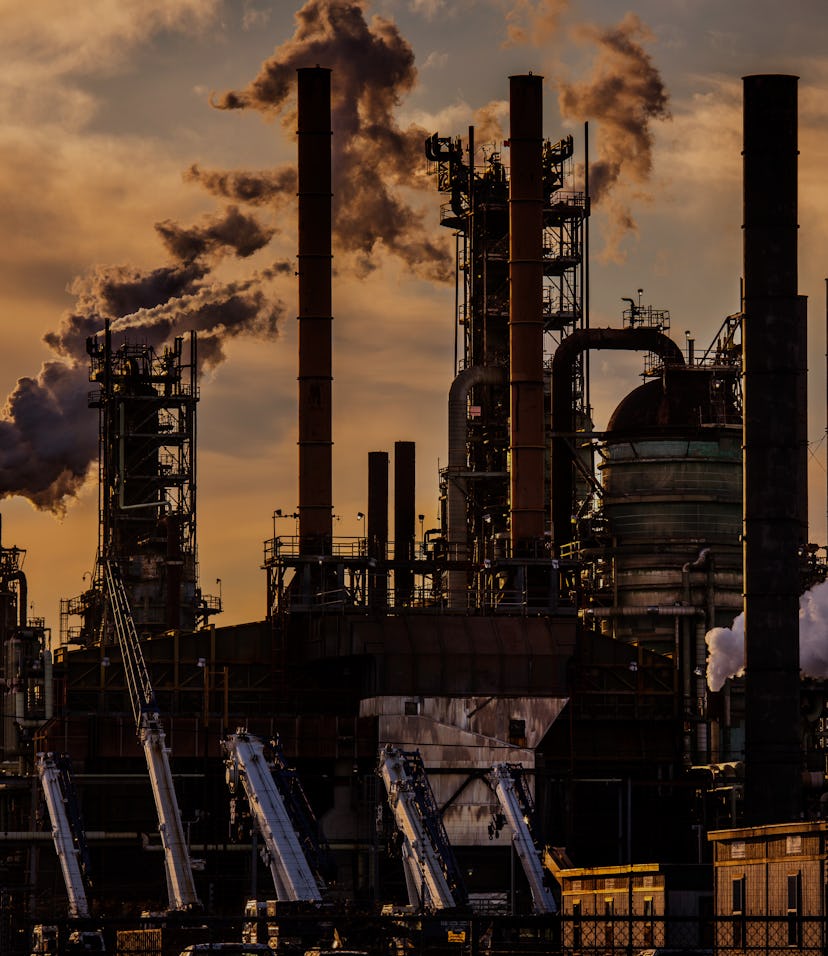Culture
Exxon abandoned a project that would have helped offset its mess
The technology could mitigate climate change but Exxon — which emits 300,000 cars worth of CO₂ every year — appears uninterested in sincere investment.

Exxon has indefinitely delayed one of its ventures that could have helped slow down climate change, Bloomberg reports. The project, centered in Wyoming, was known as the LaBarge Carbon Capture Project, which would address Exxon's problem of dumping excess carbon dioxide in the atmosphere.
The plan was to start construction in the summer of 2020 but since April, Exxon has turned cold on safe storage. Capturing carbon would have been economically advantageous for the company as Bloomberg notes the cost of the construction would come up to $260 million. For Exxon, that would have been practically nothing.
How we got here — The company's initial plan could have been helpful. The idea was to capture the gigantic amounts of carbon dioxide (CO₂) Exxon produces and bury it in an injection site, locking away the climate-warming gas in what's known as carbon capture and sequestration (CCS). Critics argue that CCS has the ability to slow and possibly even reverse climate change. For Exxon, it would also dust up its grimy image among those concerned about the planet, given that the company is one of the world's worst climate polluters.
In the beginning, Exxon called the CCS process off, citing the financial burden brought on by the COVID-19 pandemic. But then, as Bloomberg points out, the company announced that it would increase its crude oil operation close to Guyana in September. That procedure was worth $9 billion. Compared with capturing carbon and sealing it away, the entire operation was 35 times the expenses that CCS would require. Environmentalists explain this reluctance to seriously implement CCS as the natural product caused by the absence of governmental regulation targeting the oil industry.
With essential carte blanche, these giants operate on their own whim and will.
Water is wet — Of course, none of this is surprising when one takes a look at Exxon's record. In October, as Input reported, the company's plan for climate change wasn't exactly a plan at all. A deeper reading of Exxon's future strategy revealed that the firm's five-year-plan would produce annual emissions that amount to 26 coal plants. A company spokesperson attempted to downplay the concerns, calling it an "early assessment" that didn't entirely portray other "mitigation and abatement measures." By indefinitely delaying LaBarge, Exxon has once again proven that its priorities lie elsewhere.